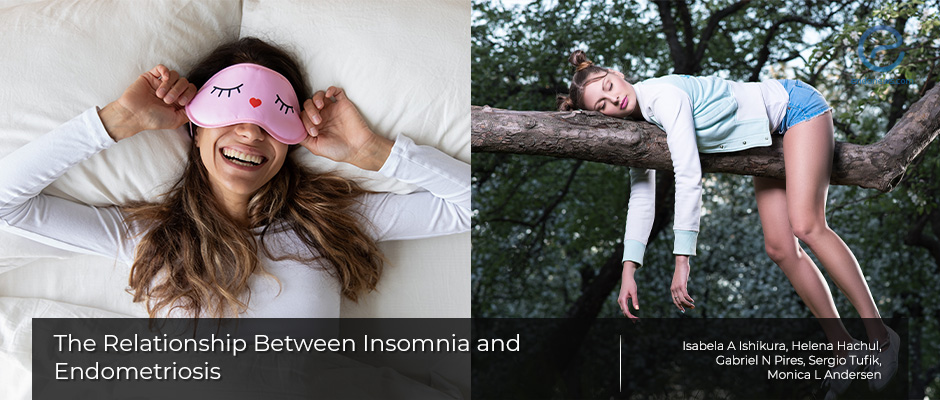Endometriosis and Insomnia
May 15, 2020
Treating insomnia may help to reduce endometriosis symptoms
Key Points
Highlight:
- This study investigates the relationship between insomnia and endometriosis.
- The clinician should suspect and search for endometriosis in women of reproductive age with sleep or insomnia-related symptoms.
Importance:
- Treating insomnia would reduce the negative outcomes caused by inflammatory and pain-related aspects and will improve mental health especially during the daytime function.
What has been done:
- This is an opinion paper, where the causes of sleepiness and fatigue in endometriosis are discussed.
Results:
- Endometriosis is a progressive inflammatory disease, associated with debilitating pain, dysmenorrhea, and infertility.
- The high prevalence of insomnia is allocated to hormonal alterations and mood changes of menstrual disorders.
- There are two relevant studies examining insomnia and endometriosis in the literature:
- Maggiore group found higher Insomnia severity index in endometriosis compared to controls
- Ramin-Wright group also observed a negative association between endometriosis and insomnia
- Studies suggest that women with both insomnia and endometriosis are more susceptible to pain symptoms.
- Sleep-related symptoms should be investigated more carefully, sometimes a specialist sleep professional may be necessary.
Lay Summary
There should be more awareness among clinicians for the relationship between insomnia and endometriosis, the study suggests.
There needs to be a suspect of endometriosis whenever the clinician faces women of reproductive age with sleep or insomnia-related symptoms. This symptom is not pathognomonic, but the complaint may be associated with dysmenorrhea and pelvic pain, fortifying the suspicion.
Endometriosis managing clinicians should investigate the sleep-related symptoms more carefully, even a specialist sleep professional may be necessary. The symptoms cause to increase the pain and mood alteration and may require medical support.
Dr. M.L Andersen group from the Federal University of Sao Paulo recently published an opinion paper in the Journal of Clinical Sleep Medicine. The high prevalence of insomnia in endometriosis generally is attributed to hormonal and gynecologic alterations naturally occurring with the disease, and there is an urgent need for appropriately designed studies examining the association and the relationship between insomnia and endometriosis. Two relevant studies present in the literature show a higher insomnia index in endometriosis compared to the control group and show a negative association between endometriosis and insomnia.
"Treating insomnia would reduce the negative outcomes inflammatory and pain-related aspects of endometriosis and would contribute to the improvement of mental health and daytime function.", concluded researchers.
Research Source: https://pubmed.ncbi.nlm.nih.gov/32267223/
sleep endometriosis sleeplessness insomnia endometrosis fatigue spoonie sleepy menstruation mood

